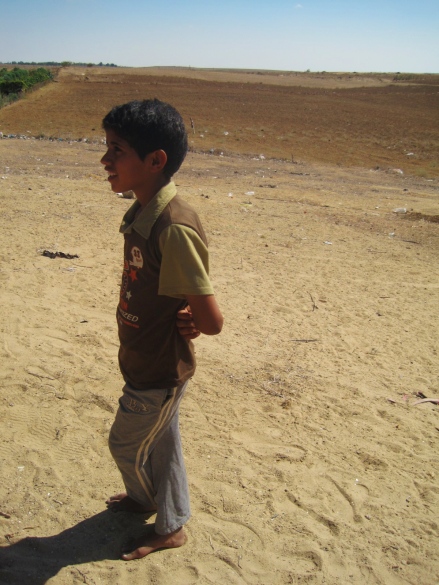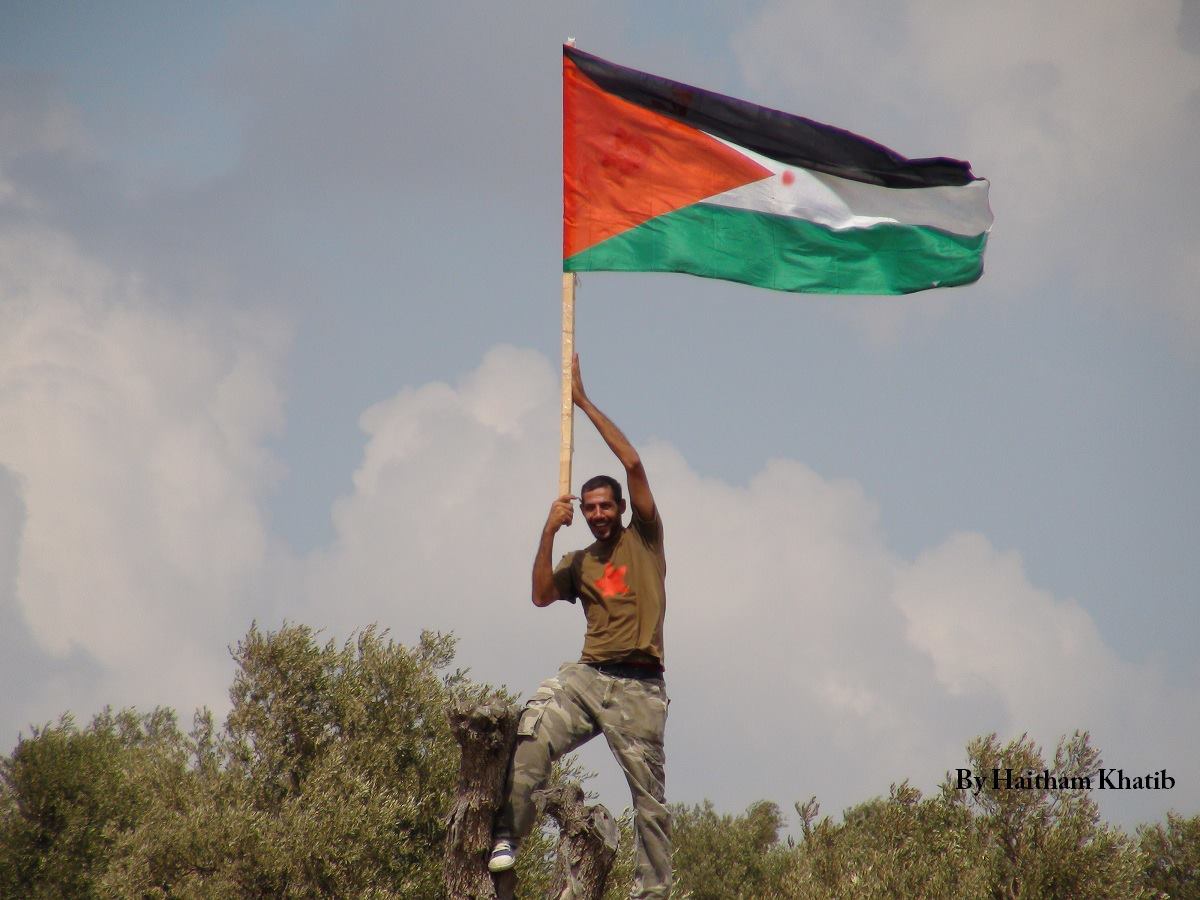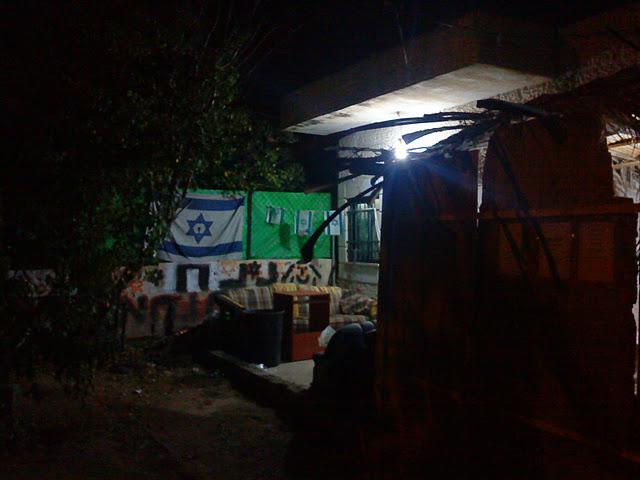Month: October 2011
-
The Olive and the F-16: Autumn in Gaza
by Radhika S. 27 October 2011 | Notes from Behind the Blockade Today completes another week of olive picking in Gaza. Another week of pausing, breaths held, as Israeli tanks the color of sand moved nearby along the buffer zone, another week of children frightened at the sound of roaring F-16s, another week below the…
-
Ashraf Abu Rahmah in the midst of circus military court
by Maria Stephanya 28 October 2011 | International Solidarity Movement, West Bank The proof is all there: photos, videos, witnesses. All of them showed that Ashraf Abu Rahmah, one of the main activists of popular non violent struggle in the village of Bil’in, Palestine, walked peacefully on the road which goes from Bil’in’s recent liberated…
-
Welcome to the settler party
by Jenna Bereld 28 October 2011 | International Solidarity Movement, West Bank As I pass, my Palestinian scarf is hidden in my bag – I do not want to get any spit on me tonight. Around the tomb of Shimon HaTzadik, the festival is going on. The settlers have built a stage, erected a huge…



